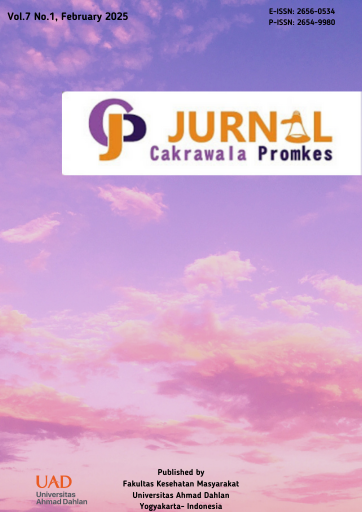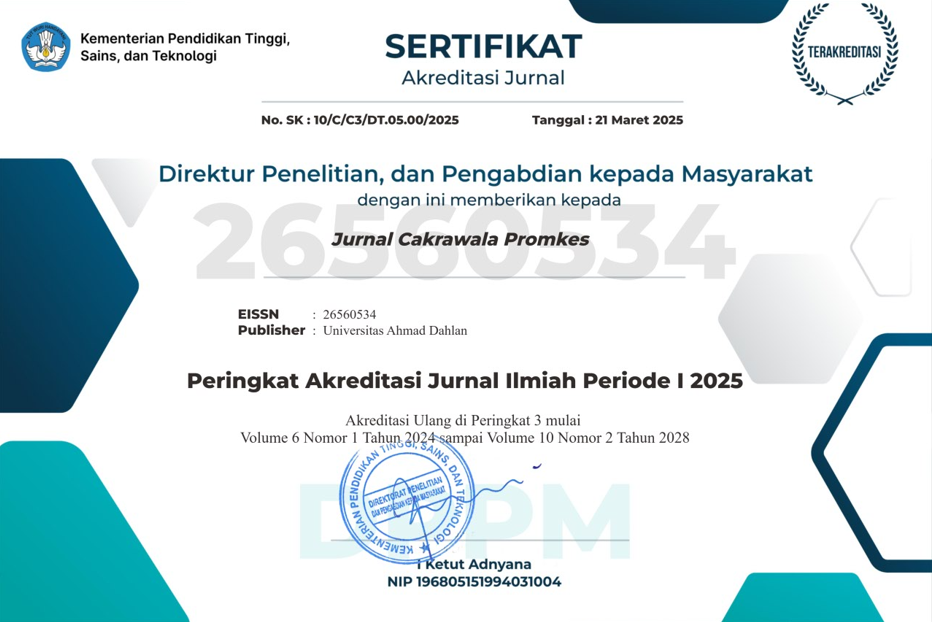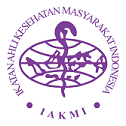The CHSE paradox: tourists at Blue Lagoon know the rules but do not follow them
DOI:
https://doi.org/10.12928/jcp.v7i1.9317Keywords:
CHSE, Cleanliness, Health, Safety, Sustainability, Tourist behaviorAbstract
This study examines the relationship between tourists' knowledge of cleanliness, health, safety, and environmental sustainability (CHSE) and their CHSE-related practices at the Blue Lagoon tourist attraction in Sleman, Yogyakarta. Using a cross-sectional design, data were collected from 106 respondents through an accidental sampling technique. The Chi-Square test was employed for statistical analysis. The results revealed no statistically significant correlation between knowledge and CHSE-related practices (cleanliness: p = 0.267, health: p = 0.480, safety: p = 0.724, environmental sustainability: p = 0.257). Despite high levels of knowledge among respondents, this awareness did not necessarily translate into consistent CHSE practices. These findings suggest that factors beyond knowledge, such as behavioral habits, infrastructure availability, and social influences, may be more critical in shaping CHSE practices among tourists. The study has practical implications for improving tourism management by encouraging greater participation from tourism operators in providing adequate CHSE infrastructure, implementing clear regulations, and enhancing supervision. Additionally, tourist compliance with CHSE protocols remains essential for ensuring safety and environmental sustainability in tourism destinations. To strengthen CHSE implementation, advocacy, partnerships, and empowerment programs among stakeholders, including government agencies, tourism managers, universities, media, and the private sector—are crucial. Moreover, policy advocacy should reinforce CHSE compliance through certification mechanisms and sanctions for non-compliance. Continuous and intensive public awareness campaigns are necessary to enhance tourist commitment to CHSE practices, ensuring safer and more sustainable tourism experiences.
References
Ritchie BW, Jiang Y. A review of research on tourism risk, crisis and disaster management: Launching the annals of tourism research curated collection on tourism risk, crisis and disaster management. Ann Tour Res [Internet]. 2019;79:102812. Available from: https://doi.org/10.1016/j.annals.2019.102812
Gössling S, Scott D, Hall CM. Pandemics, tourism and global change: a rapid assessment of COVID-19. J Sustain Tour [Internet]. 2020;29:1–20. Available from: https://doi.org/10.1080/09669582.2020.1758708
Hall CM, Scott D, Gössling S. Pandemics, transformations and tourism: be careful what you wish for. Tour Geogr [Internet]. 2020;22:577–98. Available from: https://doi.org/10.1080/14616688.2020.1759131
Nicola M, Alsafi Z, Sohrabi C, Kerwan A, Al-jabir A, Iosifidis C, et al. The socio-economic implications of the coronavirus pandemic ( COVID-19 ): A review. Int J Surg [Internet]. 2020;78:185–93. Available from: https://doi.org/10.1016/j.ijsu.2020.04.018
De Vos J. The effect of COVID-19 and subsequent social distancing on travel behavior. Transp Res Interdiscip Perspect [Internet]. 2020;5:100121. Available from: https://doi.org/10.1016/j.trip.2020.100121
Global Sustainable Tourism Council. GSTC. Destination Criteria: Version 2.0. In Global Sustainable Tourism Council [Internet]. Available from: www.gstcouncil.org
Minister of Tourism and Creative Economyof the Republik Indonesia. Regulation of the Minister of Tourism and Creative Economy/Head of the Tourism and Creative Economy Agency of the Republic of Indonesia Number 13 of 2020 concerning Standards and Certification for Cleanliness, Health, Safety and Environmental Sustainabili [Internet]. 2020. Available from: https://peraturan.bpk.go.id/Home/Details/169208/permenpar-no-13-tahun-2020
Niewiadomski P. COVID-19: from temporary de-globalisation to a re-discovery of tourism? Tour Geogr [Internet]. 2020;22:651–6. Available from: https://doi.org/10.1080/14616688.2020.1757749
Benjamin S, Dillette A, Alderman DH. “We can’t return to normal”: committing to tourism equity in the post-pandemic age. Tour Geogr. 2020;22:476–83. https://doi.org/10.1080/14616688.2020.1759130
Wicaksono A, Suradi. Penerapan Protokol Chse Di Kawasan Wisata Kecamatan Dlingo Kabupaten Bantul. Kepariwisataan J Ilm. 2021;15:83–7.
Tandilino SB. Penerapan Cleanliness, Health, Safety, & Environmental Sustainable (CHSE) dalam Era Normal Baru pada Destinasi Pariwisata Kota Kupang. Tour J Travel Hosp Cult Destin MICE [Internet]. 2020;3:62–8. Available from: http://repository.ucb.ac.id/191/
Nurrahma H, Hakim L, Parmawati R. Strategi Pengembangan Pariwisata Berdasarkan Daya Dukung Wisata dan CHSE Pada Masa Pandemi Covid-19. J Sumberd Akuatik Indopasifik. 2021;5:87–94. https://doi.org/10.46252/jsai-fpik-unipa.2021.Vol.5.No.1.133
Amelia V, Prasetyo D. Sertifikasi Chse (Cleanliness, Health, Safety, & Environment) Terhadap Objek Wisata Sebagai Wujud Pemenuhan Hak Wisatawan. J Manaj Perhotelan dan Pariwisata. 2022;5:92–9. https://doi.org/10.23887/jmpp.v5i2.49461
Ningsi W, Wibowo TA, Perjuangan J, Cirebon N. Penerapan Cleanliness, Health, Safety And Environmental Sustainability Pada Penyelenggaraan Kegiatan Wisata Di Keraton Kanoman Cirebon. J Ikraith-Huaniora. 2022;6:120–5.
Suidarma IM, Afrita NN. Upaya Meningkatkan Sektor Pariwisata Melalui Pengembangan CHSE (Cleanliness, Health, Safety, Environment) dalam Kawasan Pantai Jimbaran. Abdimas Univers. 2021;3:55–9. https://doi.org/10.36277/abdimasuniversal.v3i1.104
Rosyidah E, Sunarti A, Pangestuti E. Pengaruh Daya Tarik Wisata Dan Fasilitas Layanan Terhadap Kepuasan Wisatawan Di Pantai Balekambang Kabupaten Malang. J Adm Bisnis (JAB)|Vol. 2017;51:16–21.
Rachma US, Adriyani R, Husnina Z, Farumi SS. Literature Review: Water Quality of Public Bathing, Potential Health Problems and Water Borne Diseases on Visitors. J Kesehat Lingkung. 2021;13:102. https://doi.org/10.20473/jkl.v13i2.2021.102-112
Sulistyani A, Harto S, Yuliani F, Handoko T, Nawawi A. The Implementation Of Clean, Health, Safety, And Environment Sustainability (CHSE) Protocol In Teluk Jering Tourism Village, Kampar, Riau. Int Conf Hosp Tour Stud. 2021. p. 106–13.
Yunus M. Hubungan Pengetahuan dan Sikap Masyarakat dengan Tindakan Menjaga Kebersihan Daerah Aliran Sungai (DAS) di Desa Cane Toa Kecamatan Rikit Gaib Kabupaten Gayo Lues Tahun 2018 [Internet]. 2018. p. 118. Available from: http://repository.helvetia.ac.id/id/eprint/2451/6/Skripsi Muhammad Yunus, 1602022021.pdf
Sindunatha IGNB, Mahayana IMB, Notes N. Hubungan Tingkat Pengetahuan dengan Perilaku Pengunjung Daerah Tujuan Wisata Religi tentang Penerapan Protokol Kesehatan Covid-19. J Kesehat Lingkung. 2023;13:60–8.
Sunari GAMS, Yanti NLPE, Utami KC. Hubungan Pengetahuan Beach Safety Dengan Tindakan Keselamatan Pada Wisatawan Di Pantai Kuta Bali. Community Publ Nurs. 2021;9. https://doi.org/10.24843/coping.2021.v09.i05.p03
Agustin EE, Maisyaroh W. Hubungan Pengetahuan Lingkungan terhadap Sikap dan Perilaku Peduli Lingkungan pada Siswa SMAN 5 Jember Tahun Pelajaran 2018/2019. ALVEOLI J Pendidik Biol. 2020;1:81–90. https://doi.org/10.35719/alveoli.v1i2.16
Glanz K, Rimer BK, Viswanath K. Health Behavior and Health Education. 4th Editio. Orleans CT, editor. Heal. San Fr. San Fransisco: Jossey-Bass; 2008.
Green L, CL A. Community Health. 4th ed. St Louis: Mosby; 1982.
Jubaedah S, Fajarianto O. Model Pengembangan Desa Wisata Berbasis Kearifan Lokal Sebagai Strategi Peningkatan Ekonomi Masyarakat di Desa Cupang Kecamatan Gempol Kabupaten Cirebon. Abdimas Awang Long. 2021;4:1–10. https://doi.org/10.56301/awal.v4i1.121
Downloads
Published
Issue
Section
License
Copyright (c) 2025 Muhammad Fadillah Zulhayudin, Helfi Agustin, Nadha Marlyta, Rochana Ruliandari, Ezza Addini

This work is licensed under a Creative Commons Attribution-ShareAlike 4.0 International License.
Authors who publish with JCP: Jurnal Cakrawala Promkes agree to the following terms:
- Authors retain copyright and grant the journal the right of first publication with the work simultaneously licensed under a Creative Commons Attribution License (CC BY-SA 4.0) that allows others to share the work with an acknowledgement of the work's authorship and initial publication in this journal.
- Authors are able to enter into separate, additional contractual arrangements for the non-exclusive distribution of the journal's published version of the work (e.g., post it to an institutional repository or publish it in a book), with an acknowledgement of its initial publication in this journal.
- Authors are permitted and encouraged to post their work online (e.g., in institutional repositories or on their website) prior to and during the submission process, as it can lead to productive exchanges, as well as earlier and greater citation of published work.

This work is licensed under a Creative Commons Attribution-ShareAlike 4.0 International License












